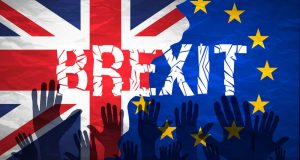Brexit means Brexit! What does it really mean?
 The Prime Minister of UK Theresa May has been quoted as saying Brexit means Brexit. What does it really mean? Early this week the Prime Minister of the UK wrote a letter to the President of the European Council Donald Tusk triggering article 50 of the Lisbon Treaty which officially starts the process for the UK leaving the EU.
The Prime Minister of UK Theresa May has been quoted as saying Brexit means Brexit. What does it really mean? Early this week the Prime Minister of the UK wrote a letter to the President of the European Council Donald Tusk triggering article 50 of the Lisbon Treaty which officially starts the process for the UK leaving the EU.
The letter started off with below comments “On 23 June last year, the people of the United Kingdom voted to leave the European Union. As I have said before, that decision was no rejection of the values we share as fellow Europeans. Nor was it an attempt to do harm to the European Union or any of the remaining member states. On the contrary, the United Kingdom wants the European Union to succeed and prosper. Instead, the referendum was a vote to restore, as we see it, our national self-determination. We are leaving the European Union, but we are not leaving Europe – and we want to remain committed partners and allies to our friends across the continent.”
In response to UK serving article 50 notice the European Council released a statement and this read “Today, the European Council received a letter from the British Prime Minister, Theresa May, notifying the United Kingdom’s intention to leave the European Union. This notification follows the referendum of 23 June 2016 and starts the withdrawal process under Article 50 of the Treaty. We regret that the United Kingdom will leave the European Union, but we are ready for the process that we now will have to follow.”
Donald Tusk during a press conference made it clear that they do not plan to start any parallel negotiations on trade until the remaining 27 member countries are satisfied that there is “sufficient progress” on the divorce negotiations. This includes below key discussion areas;
- UK settle its Brexit bill
- Reach agreement on the rights of EU citizens living in Britain
- Agreement on the border between Northern Ireland and the Republic
- Clarity over EU law in the UK after it leaves
The 2-year clock has started for UK and EU to agree the divorce settlement and any trade deals within this period. Some experts are questioning whether UK would be able to agree a trade deal within this 2-year period. Worst case scenario is “no trade deal” and UK must then rely upon international trade agreements.
There are many flavours of Brexit such as “Soft Brexit”, “Hard Brexit” and even “Extreme Brexit”. These are terms created by the media and politicians with their own agenda and specific definition.
Hard Brexit This could be where UK leaves the EU with no access or limited access to EU single market and is not part of the EU customs union with reliance on international trade agreements. Many politicians and experts are warning that a Hard Brexit would be bad for the UK economy. However, there are many factors at play and politicians and experts have been occasionally wrong in the past.
Soft Brexit Here some politicians have suggested UK leaves the EU but still has full access to EU single market and is a member of the EU customs union. This would be the ideal scenario for the UK but the EU would be very reluctant to offer such a deal unless UK agrees to freedom of movement, accepts EU laws and pays a fee to access the single market. It is unlikely that UK would accept such terms considering the people have voted to bring back control to their borders and laws.
Extreme Brexit Some politicians have been quoted as saying that Theresa May will end up with an Extreme Brexit deal with the EU. They are concerned about UK reaching no agreement with the EU and relaxing all currents laws to make UK a Tax haven for companies. This could mean workers’ rights are taken away and companies exploiting workers and the environment to make more profit. This may be scare mongering from certain politicians and the likelihood is that we end up with a deal somewhere between soft and hard Brexit.
During the two-year period while Britain negotiates with the EU, the country remains a member of the EU and therefore full access to single market, freedom of movement and import export is unlikely to be affected. However, pressure is already building from Scotland, Northern Ireland and Wales where each country want to influence the Brexit negotiations and have their say in what agreement is reached with the EU. Theresa May therefore has a tough time ahead of her and only time will tell if she manages to pull a rabbit out of the hat and Brexit really means what the people of the UK wanted and each member of the United Kingdom.
